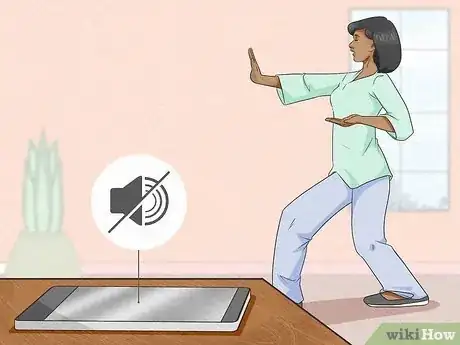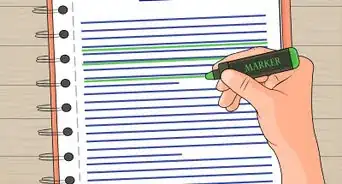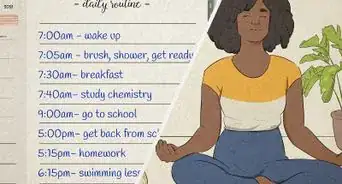This article was co-authored by Jai Flicker and by wikiHow staff writer, Glenn Carreau. Jai Flicker is an Academic Tutor and the CEO and Founder of Lifeworks Learning Center, a San Francisco Bay Area-based business focused on providing tutoring, parental support, test preparation, college essay writing help, and psychoeducational evaluations to help students transform their attitude toward learning. Jai has over 20 years of experience in the education management industry. He holds a BA in Philosophy from the University of California, San Diego.
There are 14 references cited in this article, which can be found at the bottom of the page.
wikiHow marks an article as reader-approved once it receives enough positive feedback. In this case, 100% of readers who voted found the article helpful, earning it our reader-approved status.
This article has been viewed 132,508 times.
Is it ever too late to learn a new skill? The answer is: absolutely not! Learning new things is beneficial at any age, and it can change your life in many ways—from giving you a career boost to helping you discover a new passion. All you need is enthusiasm, focus, and some helpful learning strategies. From cooking to learning a new language, here’s a list of tips and techniques that will help you learn any new skill you desire.
Things You Should Know
- There are lots of ways to learn! Take a class, find a mentor, or self-teach. Use lots of different learning materials from books to online videos.
- Learn by doing and use experts' work as a guide. Try teaching someone else to hone your understanding of the subject, and give yourself tests.
- Make a practice schedule. Work in short bursts, practice often, and get rid of distractions. Challenge yourself, and reward yourself for progress.
Steps
Expert Q&A
Did you know you can get expert answers for this article?
Unlock expert answers by supporting wikiHow
-
QuestionHow can I learn new things as an adult?
 Jai FlickerJai Flicker is an Academic Tutor and the CEO and Founder of Lifeworks Learning Center, a San Francisco Bay Area-based business focused on providing tutoring, parental support, test preparation, college essay writing help, and psychoeducational evaluations to help students transform their attitude toward learning. Jai has over 20 years of experience in the education management industry. He holds a BA in Philosophy from the University of California, San Diego.
Jai FlickerJai Flicker is an Academic Tutor and the CEO and Founder of Lifeworks Learning Center, a San Francisco Bay Area-based business focused on providing tutoring, parental support, test preparation, college essay writing help, and psychoeducational evaluations to help students transform their attitude toward learning. Jai has over 20 years of experience in the education management industry. He holds a BA in Philosophy from the University of California, San Diego.
Academic Tutor
-
QuestionCan learning new things also help break bad habits?
 AbigailMillerCommunity AnswerUsually, it is possible because when you learn something new, your attention is highly focused on that thing, which may help you kick a bad habit. There is also a situation where your interest and perseverance in something new outweighs your bad habits, and then this is a benign development.
AbigailMillerCommunity AnswerUsually, it is possible because when you learn something new, your attention is highly focused on that thing, which may help you kick a bad habit. There is also a situation where your interest and perseverance in something new outweighs your bad habits, and then this is a benign development.
References
- ↑ https://www.opencolleges.edu.au/informed/features/10-ways-improve-transfer-learning/
- ↑ https://www.niu.edu/citl/resources/guides/instructional-guide/experiential-learning.shtml
- ↑ https://careerwise.minnstate.edu/exoffenders/expand-skills/gain-skills.html
- ↑ https://www.npr.org/2019/10/25/773158390/how-to-find-a-mentor-and-make-it-work
- ↑ https://cft.vanderbilt.edu/guides-sub-pages/effective-educational-videos/
- ↑ https://www.uopeople.edu/blog/5-study-skills-and-techniques-for-students-who-want-to-succeed-in-college/
- ↑ https://ideas.ted.com/dont-have-10000-hours-to-learn-something-new-thats-fine-all-you-need-is-20-hours/
- ↑ https://www.npr.org/2021/10/30/1049098913/learning-new-skills-tips
- ↑ https://success.oregonstate.edu/learning/concentration
- ↑ https://www.nih.gov/news-events/nih-research-matters/how-short-breaks-help-brain-learn-new-skills
- ↑ https://www.edutopia.org/article/5-research-backed-studying-techniques
- ↑ https://www.psychologytoday.com/us/blog/science-choice/201912/9-key-principles-learning-new-skill
- ↑ https://www.nhs.uk/mental-health/self-help/guides-tools-and-activities/five-steps-to-mental-wellbeing/
- ↑ https://nextsteps.idaho.gov/resources/upskilling-career-advancement











































































